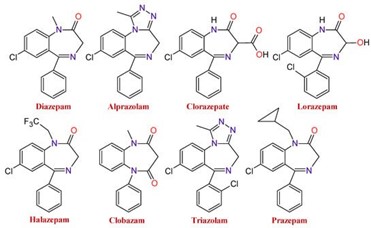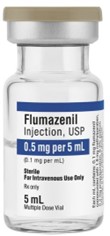A client taking phenytoin suddenly develops hives. The nurse understands which of the following explains this occurrence.
A paradoxical reaction related to the body's attempt to maintain homeostasis, and it will resolve over time.
An allergic response and the medication should be stopped.
A random idiosyncratic reaction that will not disrupt the treatment plan.
A hypersensitive (excessive) response and the dose should be reduced.
The Correct Answer is B
The sudden development of hives in a client taking phenytoin is most likely an allergic response to the medication. In this case, the medication should be stopped and the healthcare provider should be notified.
Option A is incorrect because a paradoxical reaction is not related to the development of hives.
Option C is incorrect because an idiosyncratic reaction is unpredictable and can disrupt the treatment plan.
Option D is incorrect because a hypersensitive response would require more than just reducing the dose; the medication should be stopped.


Nursing Test Bank
Naxlex Comprehensive Predictor Exams
Related Questions
Correct Answer is C
Explanation
The nurse would want to have flumazenil readily available in case benzodiazepine reversal is needed. Flumazenil is a medication used to reverse the effects of benzodiazepines such as lorazepam ¹. It can be used to help a person wake up after a medical procedure in which a benzodiazepine was used as a sedative or to treat a benzodiazepine overdose ¹.
Option A is incorrect because physostigmine is not used to reverse the effects of benzodiazepines.
Option B is incorrect because naloxone is used to reverse the effects of opioids, not benzodiazepines.
Option D is incorrect because syrup of ipecac is not used to reverse the effects of benzodiazepines.


Correct Answer is ["B","C","D","E"]
Explanation
The common adverse effects of fluoxetine that the nurse should include in their health teaching are nervousness, dry mouth, decreased libido, and insomnia ². These are all known side effects of fluoxetine and can occur in some people who take the medication.
Option A is incorrect because low-grade fever is not a common side effect of fluoxetine.
Option f is incorrect because bradycardia (slow heart rate) is not a common side effect of fluoxetine.

Whether you are a student looking to ace your exams or a practicing nurse seeking to enhance your expertise , our nursing education contents will empower you with the confidence and competence to make a difference in the lives of patients and become a respected leader in the healthcare field.
Visit Naxlex, invest in your future and unlock endless possibilities with our unparalleled nursing education contents today
Report Wrong Answer on the Current Question
Do you disagree with the answer? If yes, what is your expected answer? Explain.
Kindly be descriptive with the issue you are facing.
